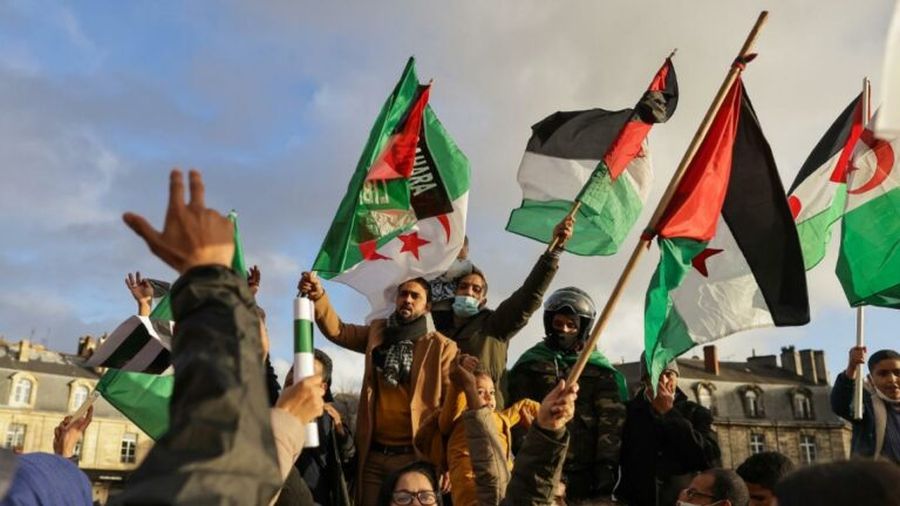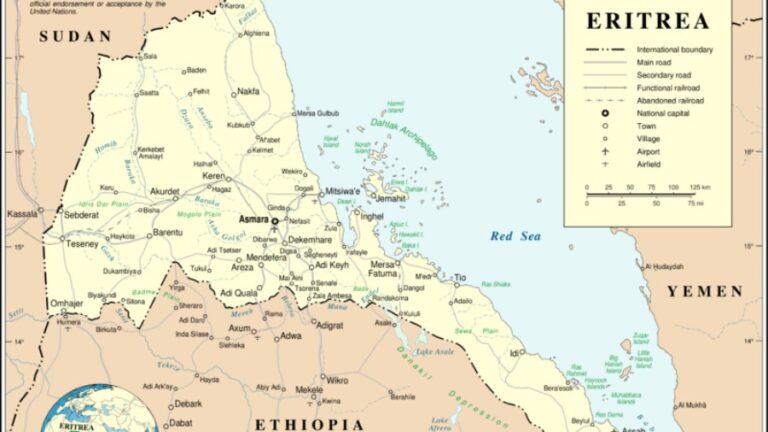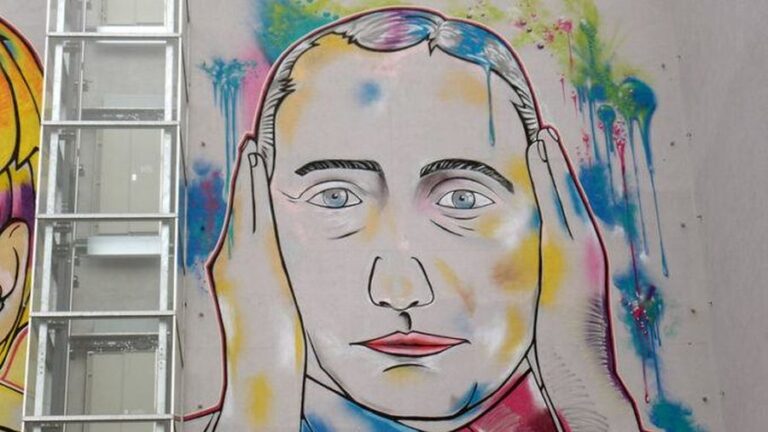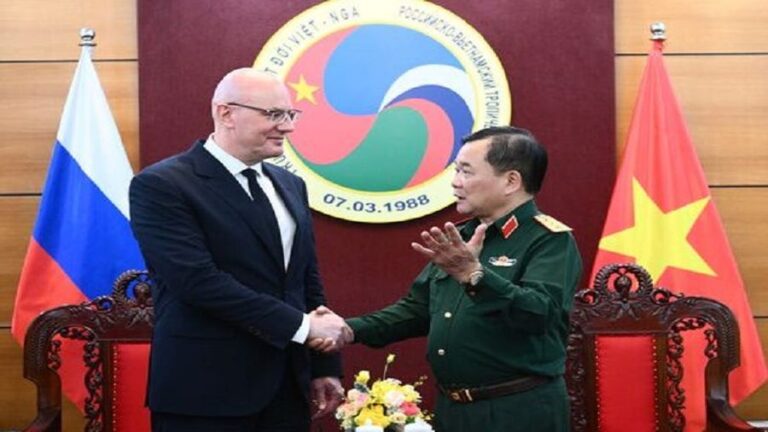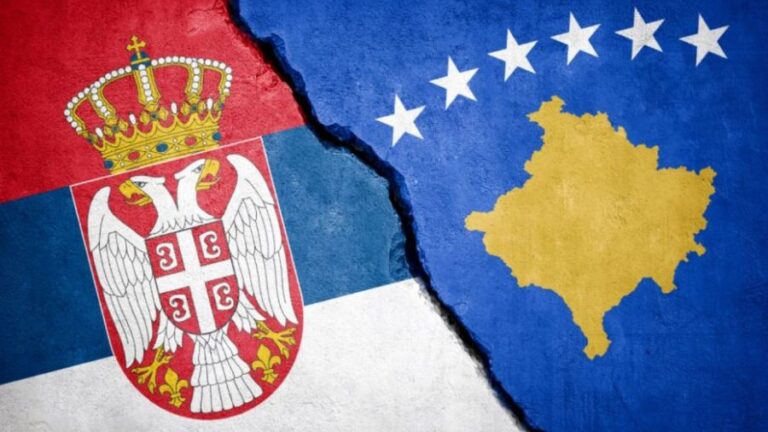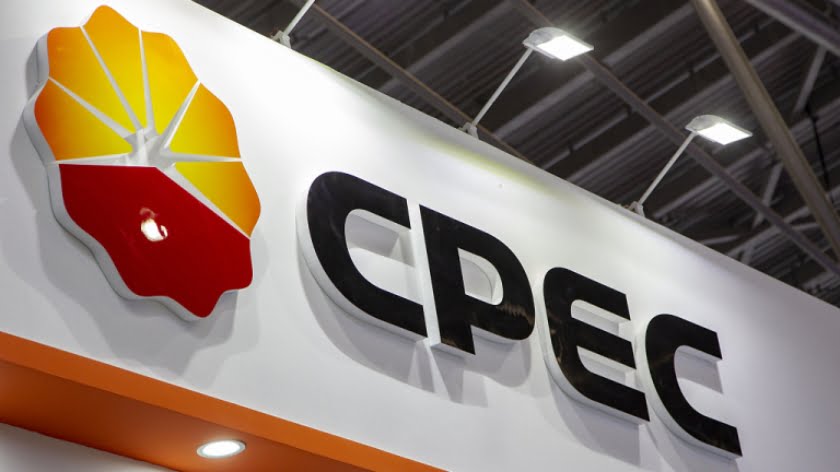Western Sahara, Morocco and Algeria One Step From War
Morocco and Algeria flex their muscles on the Western Sahara front. The word war is no longer a taboo. In the background, the fate of the Polisario Front, led by Brahim Ghali. The movement that founded the democratic republic of Sahwari, not recognized by the United Nations, has made it known that it will not stop fighting for the independence of Western Sahara. And the enemy is Rabat. For more than a month, attacks and conflicts have started, so far of low intensity. But the Kingdom of Morocco, especially after the meeting in Washington on November 22, between Foreign Minister Nasser Bourita and US Secretary of State Antony Blinken, has increased pressure on the areas where the Polisario front operates with the greatest impact, in Guerguerat area.
The latest incident took place on November 1st. Three Algerian drivers lost their lives while aboard their trucks, which went up in flames and then exploded along the road from Nouakchott, the Mauritanian capital, to Ouargala in Algeria. It is not clear how these three trucks went up in flames and exactly in what part of the route, which is 3,500 kilometers long and requires two days of travel, the accident occurred. Sahwari reporter Rachid Zeindinn showed the remains of the three charred trucks in a video.
Morocco and Algeria accuse each other of that episode. For the Kingdom of Morocco, it would not have been an attack, but an explosion caused by the passage of trucks over a minefield. Those mines, according to Rabat intelligence, were allegedly placed there by the Polisario men. The version that comes from Algiers is different. According to the state news agency “Aps” “three Algerian citizens were cowardly murdered by a barbaric bombing of their trucks” accusing the Moroccan armed forces of having conducted an air raid using a drone and admonishing: “Their murder will not remain unpunished.
According to the Algerian specialized website “Menadefense.net”, Algerian truck drivers were allegedly killed in Bir Lahlou, even if the route that truck drivers usually use to go from Nouakchott to Ouargala does not pass through that village. According to the Moroccan source, this area is used exclusively by military vehicles of the armed militias of the Polisario Front, the Sahrawi separatists supported by Algeria who are fighting for the independence of the former Spanish colony.
Abdelmajid Tebboune, president of Algeria, accuses Morocco of being the cause of all the problems in the country. The Algerian authorities announced on 13 October that they had foiled a “plot” aimed at undermining the stability of the country. It would be the work of a “terrorist organization that embraces the separatist trend”, with the complicity of “the Zionist entity and a state in North Africa”: a clear allusion to Morocco and its good relations with Israel.
For over a year, tension has been growing in Western Sahara. The discounts began a little over a year ago, when, on November 13, 2020, the Moroccan armed forces intervened at the Mauritanian border crossing of Guerguerat to create a security cordon, and with the recognition of the United States they unilaterally declared the sovereignty of Rabat over Western Sahara.
Washington’s is a foregone endorsement. Since 1836, Morocco has been a valuable ally for the United States in Africa, so much so that now it has been called a “non-NATO ally, eligible for priority delivery of defense material, defense research and development programs”.
From that distant piece of desert the sound of war drums comes louder and louder. The closure of the Maghreb – Europe Gas Pipeline (MEG) could also be the prelude to an armed conflict.
Algeria declares it is ready for war. Morocco explains that it has no belligerent intentions towards its neighbor. But in the meantime, it strengthens its defense systems. Over the past year, the Rabat government has spent nearly $ 10 billion on the purchase of attack drones from Turkey, Apache helicopters and Model 72 F-16s. The Moroccan government has spent nearly $ 10 billion.
The dispute over the Western Sahara began in 1975 when, following the withdrawal of Spanish rule, Morocco annexed a part of this area, located on the north-western coast of Africa. In response, in 1976, the Polisario Front, formed as a movement on May 10, 1973, announced the birth of the Sahrawi Arab Democratic Republic (SADR), establishing a government in exile in Algeria and waging a guerrilla war for independence that lasted until September 6, 1991, the year in which a ceasefire was declared, promoted by the United Nations Mission for the referendum in Western Sahara (MINURSO). Now, after thirty years, there is a risk of a new conflict.

